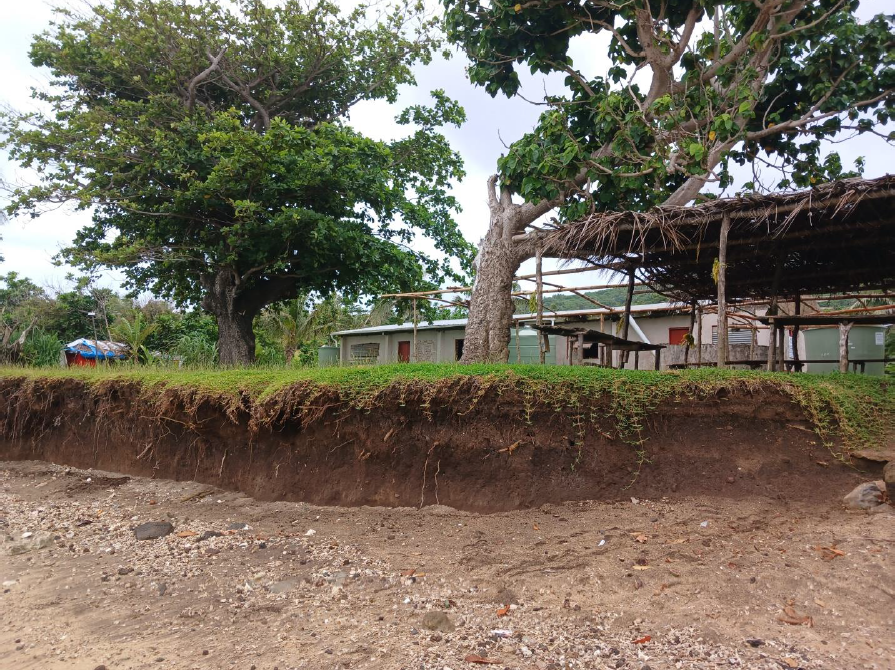Port Vila, Vanuatu – A new case study was undertaken recently to look into how climate change affects vulnerable communities and their ability to recover.
From the 4th to 8th March 2024, Strengthening loss and damage capacity in the Global South (STRENGTH) project Coordinator Brian Maltera and Loss & Damage PhD researcher Ms Joana Tunn spent 5 days in the villages of Marou, Mangarong and Wiana at Emau Island.
The Strength (L&D) Project under the Department of Climate Change conducted the study, as a baseline, with focus on comprehensive understanding of the diverse climate-induced loss and damage situations as well as to explore the needs of most vulnerable groups in coping with and recovering from climate induced losses and damages.
It is critical for loss and damage to be addressed with a greater sense of clarity at this stage, due to the vast number of losses and damages associated with climate change extremes and slow-onset events.
There is a risk that many important facets of losses and damages will be missed, such as how slow-onset events are causing loss of culture and human health, or how the species loss of plants and animals will jeopardize rural women’s livelihoods for the case of Emau island; subject to future project progress update.
Among the most vulnerable groups identified in the villages, are elderly women, people leaving with disabilities, and women who highlighted the urgent need for tailored interventions to address their specific needs in times of disaster.
Elderly women often widowed, face significant challenges in rebuilding their lives after disaster strikes - With limited financial resources, they struggle to repair and rebuild their homes, often relying on the support of extended family members.
While People living with disability confront multiple barriers during disasters, with access to clean water and sanitation emerging as a critical concern. The intrusions of salt water worsen the situation, posing serious health risks and hindering mobility.
From women perspective, playing a central role in household food security, they face challenges in accessing clean water, sanitation and sufficient food supplies.
Declining of agricultural productivity due to impacts further compounds these challenges, impacting their ability to provide for their families. These are the feedbacks gathered from the group discussions held at selected villages on Emau island.

Coastal erosion at Wiana village on Emau island – Shefa Province - PC Brian Maltera

